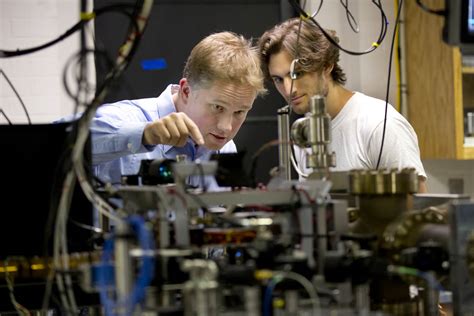The Evolutionary Landscape of Physics
Physics, the fundamental science of matter, energy, and the universe, has undergone a paradigm shift in recent years. Fuelled by technological advancements and novel experimental techniques, contemporary physics programs are evolving towards interdisciplinary collaborations, cutting-edge research facilities, and transformative educational experiences.

Top Physics Programs: Shaping the Future
Amidst this dynamic landscape, numerous universities have emerged as bastions of excellence in physics education and research. Based on authoritative rankings by organizations such as QS World University Rankings, U.S. News & World Report, and The Times Higher Education, here are the top-ranked physics programs globally:
| Rank | University | Location |
|---|---|---|
| 1 | Massachusetts Institute of Technology (MIT) | Cambridge, MA, USA |
| 2 | University of Cambridge | Cambridge, UK |
| 3 | California Institute of Technology (Caltech) | Pasadena, CA, USA |
| 4 | ETH Zurich – Swiss Federal Institute of Technology | Zurich, Switzerland |
| 5 | Stanford University | Stanford, CA, USA |
Faculty and Research Highlights
The world’s leading physics programs attract renowned faculty members who are pushing the boundaries of scientific discovery. These universities also boast state-of-the-art research facilities, enabling students to engage in cutting-edge research projects.
Faculty Expertise:
- MIT: Hosts over 300 tenure-track physics faculty members, including seven Nobel laureates.
- University of Cambridge: Home to the renowned Cavendish Laboratory, which has produced 29 Nobel Prizes in Physics.
- Caltech: Employs a faculty of over 120 physics professors, including seven MacArthur Fellows.
Research Facilities:
- ETH Zurich: Operates the Swiss Light Source (SLS), one of the world’s brightest synchrotron light sources.
- Stanford University: Houses the Stanford Linear Accelerator Center (SLAC), a leading facility for particle physics research.
- Princeton University: Supports the Princeton Plasma Physics Laboratory, a center for research on nuclear fusion.
Student Experience and Career Opportunities
Beyond academic excellence, these top-ranked physics programs offer a transformative educational experience for students. They provide opportunities for hands-on research, interdisciplinary coursework, and career mentorship.
Educational Features:
- Hands-on Research: Students actively participate in research projects alongside renowned faculty mentors.
- Interdisciplinary Collaboration: Physics programs foster collaborations with other disciplines, such as engineering, computer science, and materials science.
- Career Mentorship: Universities offer dedicated career services and mentorship programs to support students’ career aspirations.
Career Outcomes:
Graduates of these top physics programs pursue careers in diverse fields, including:
- Academia: Research scientists, professors, and post-doctoral researchers
- Industry: Physicists, engineers, and data scientists
- Public Policy: Science advisors, policymakers, and consultants
Emerging Trends and Future Prospects
The future of physics is predicated on interdisciplinary synergies and technological advancements. Emerging trends include:
- Quantum Computing: Exploiting the principles of quantum mechanics for breakthrough applications.
- Astrophysics and Cosmology: Probing the origins and evolution of the universe.
- Biophysics: Bridging the gap between physics and biological systems.
- Materials Science: Designing and manipulating materials with tailored properties.
Motivations for Pursuing Physics
The pursuit of physics is driven by a deep desire to understand the intricacies of the universe. Students and researchers are motivated by:
- Intellectual Curiosity: An unyielding desire to explore the fundamental principles of nature.
- Problem-Solving Skills: Physics develops critical thinking, analytical reasoning, and problem-solving abilities.
- Technological Advancement: A passion for applying physics knowledge to push the boundaries of innovation.
- Social Impact: A commitment to using physics to address societal challenges and improve human life.
Benefits of Earning a Physics Degree
A degree in physics offers numerous benefits, including:
- Career Versatility: Physics graduates are highly sought after in various industries and sectors.
- Intellectual Growth: Physics challenges students to think critically, solve complex problems, and expand their understanding of the universe.
- Personal Fulfillment: Pursuing physics can provide a profound sense of fulfillment and purpose.
- Societal Contribution: Physics graduates make significant contributions to scientific advancement and societal progress.
Conclusion
The best physics programs empower students to unravel the mysteries of the universe, develop innovative solutions, and contribute to the advancement of science and technology. By embracing interdisciplinary collaborations, cutting-edge research, and transformative educational experiences, these universities foster the next generation of scientific pioneers who will shape the future of physics and human knowledge.
